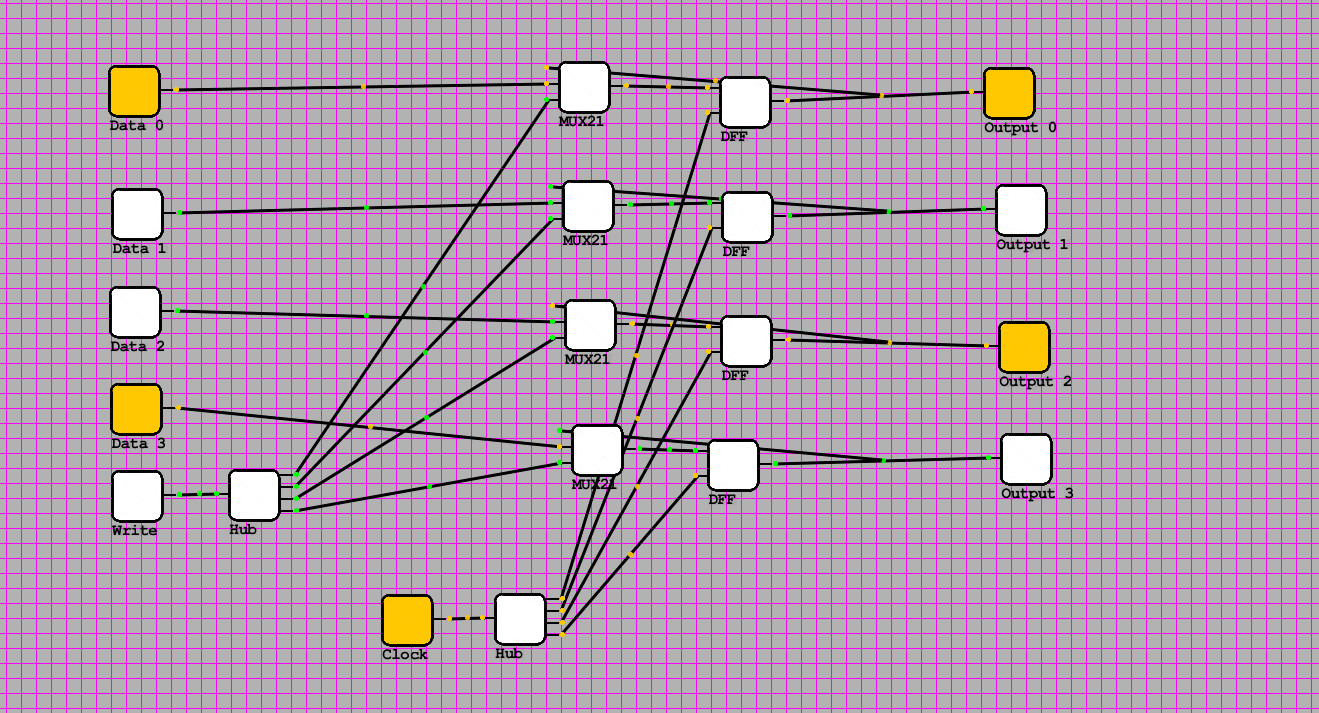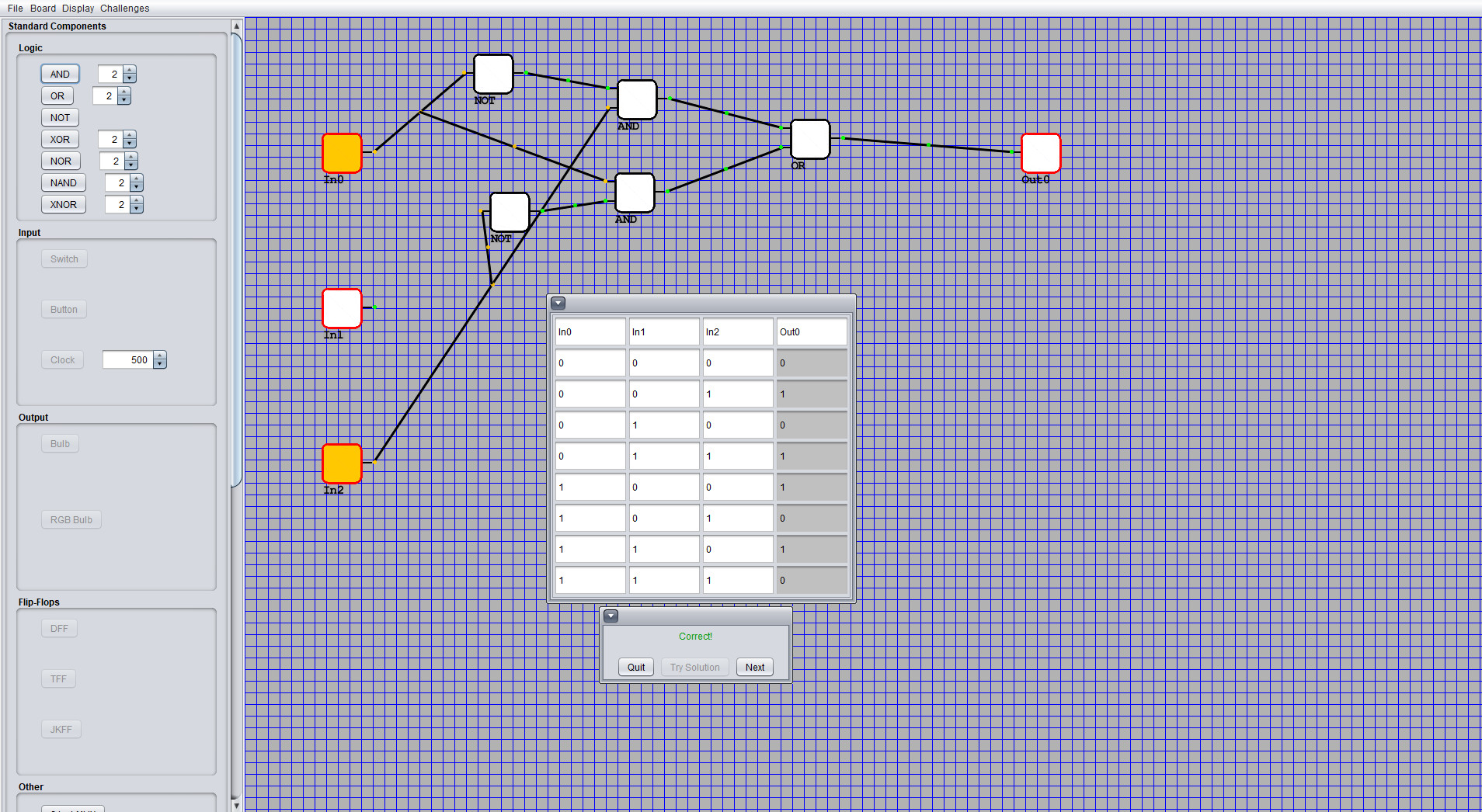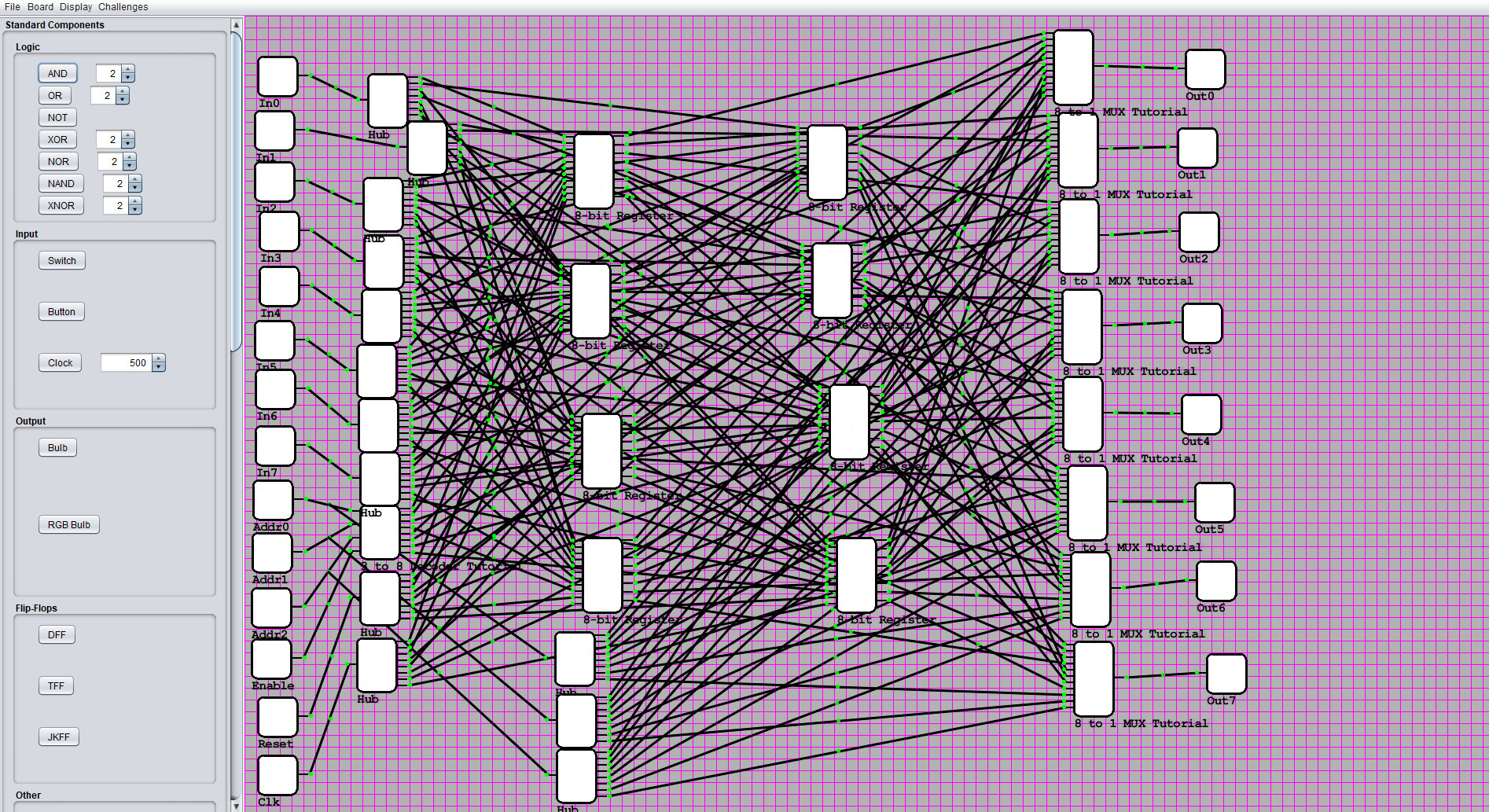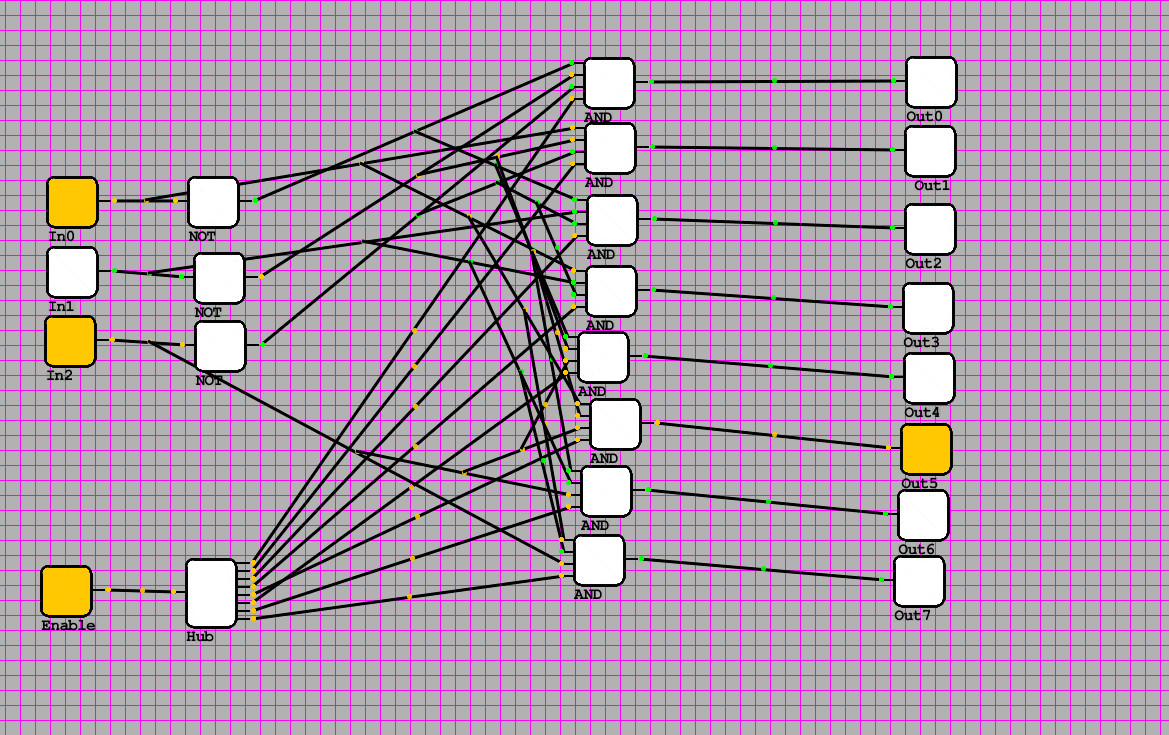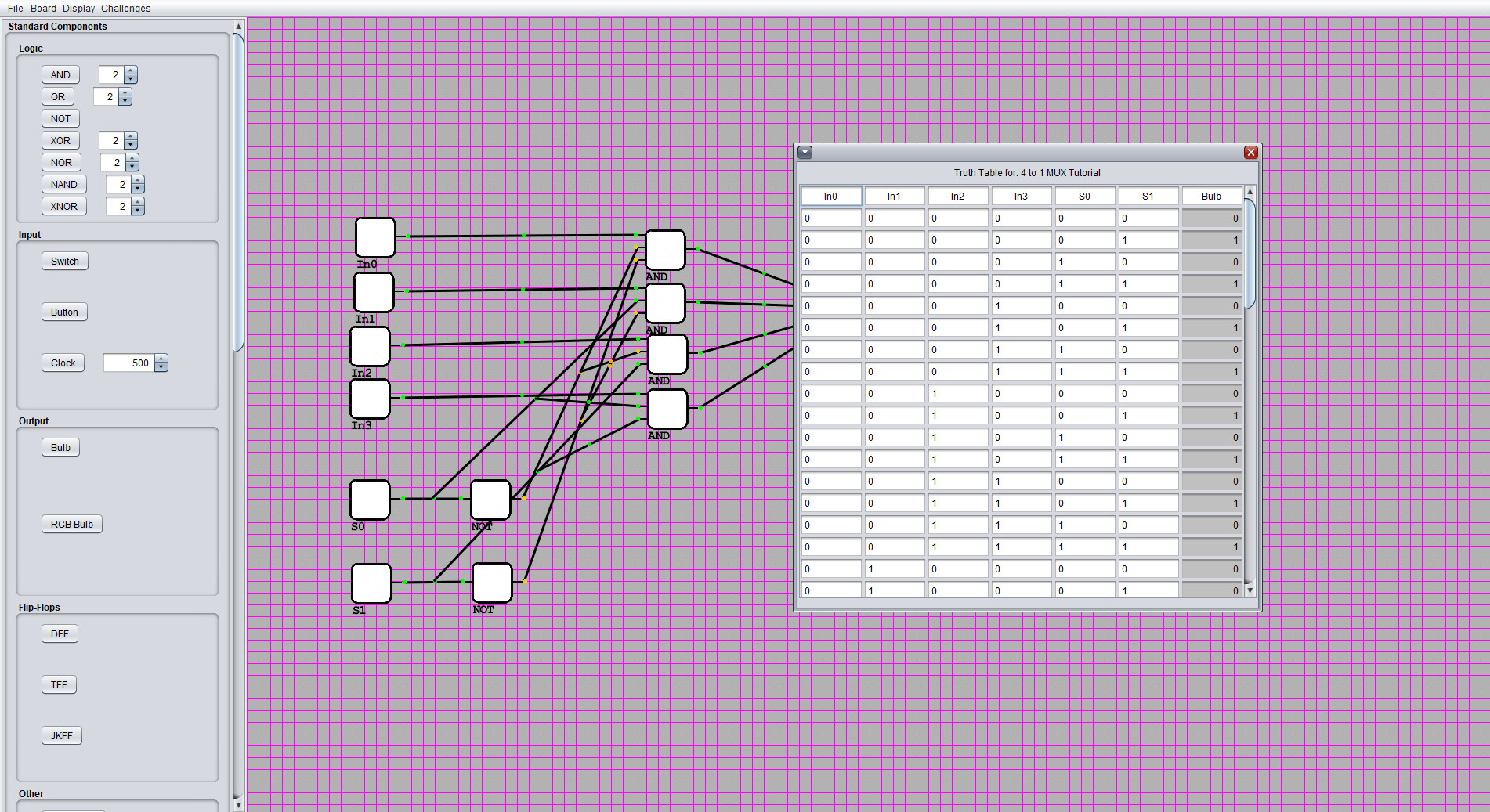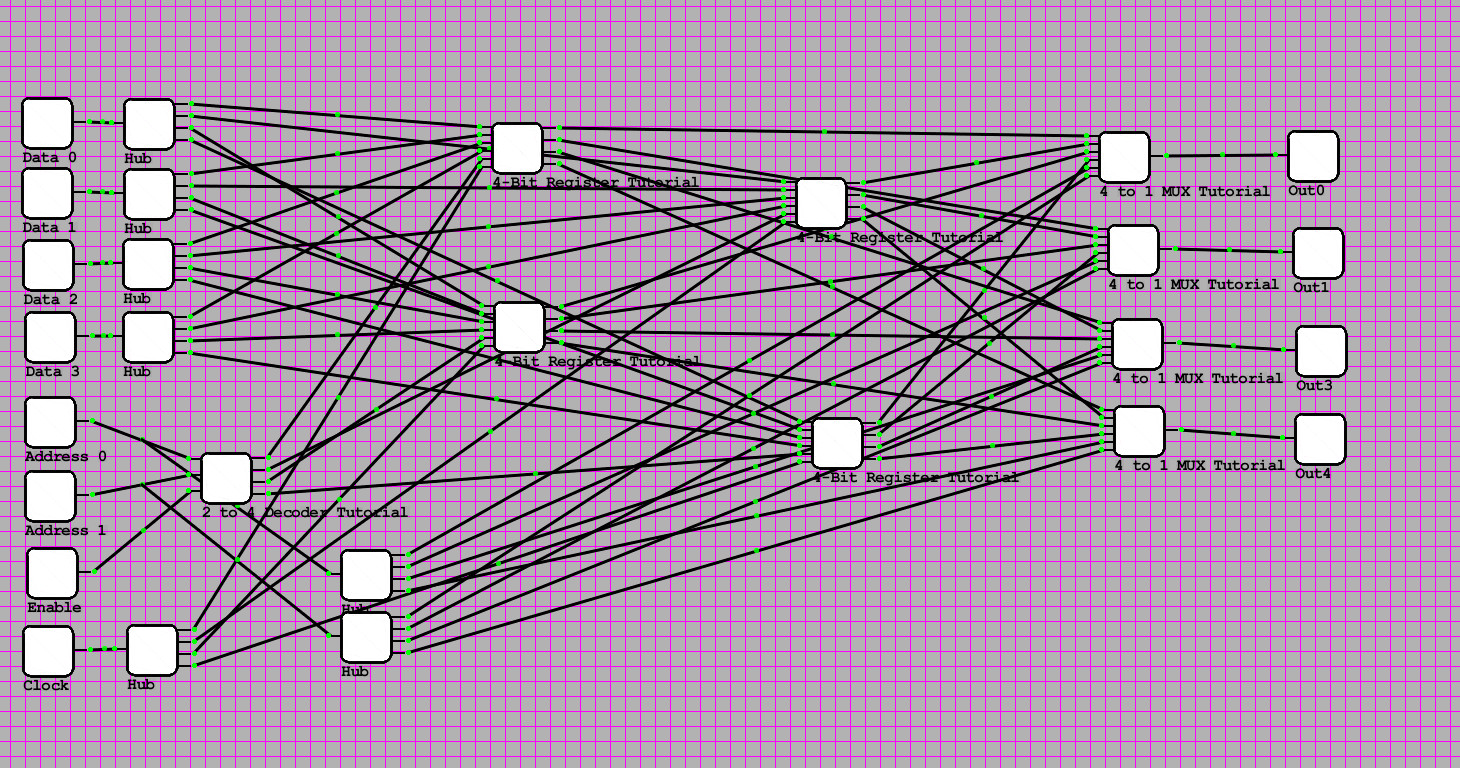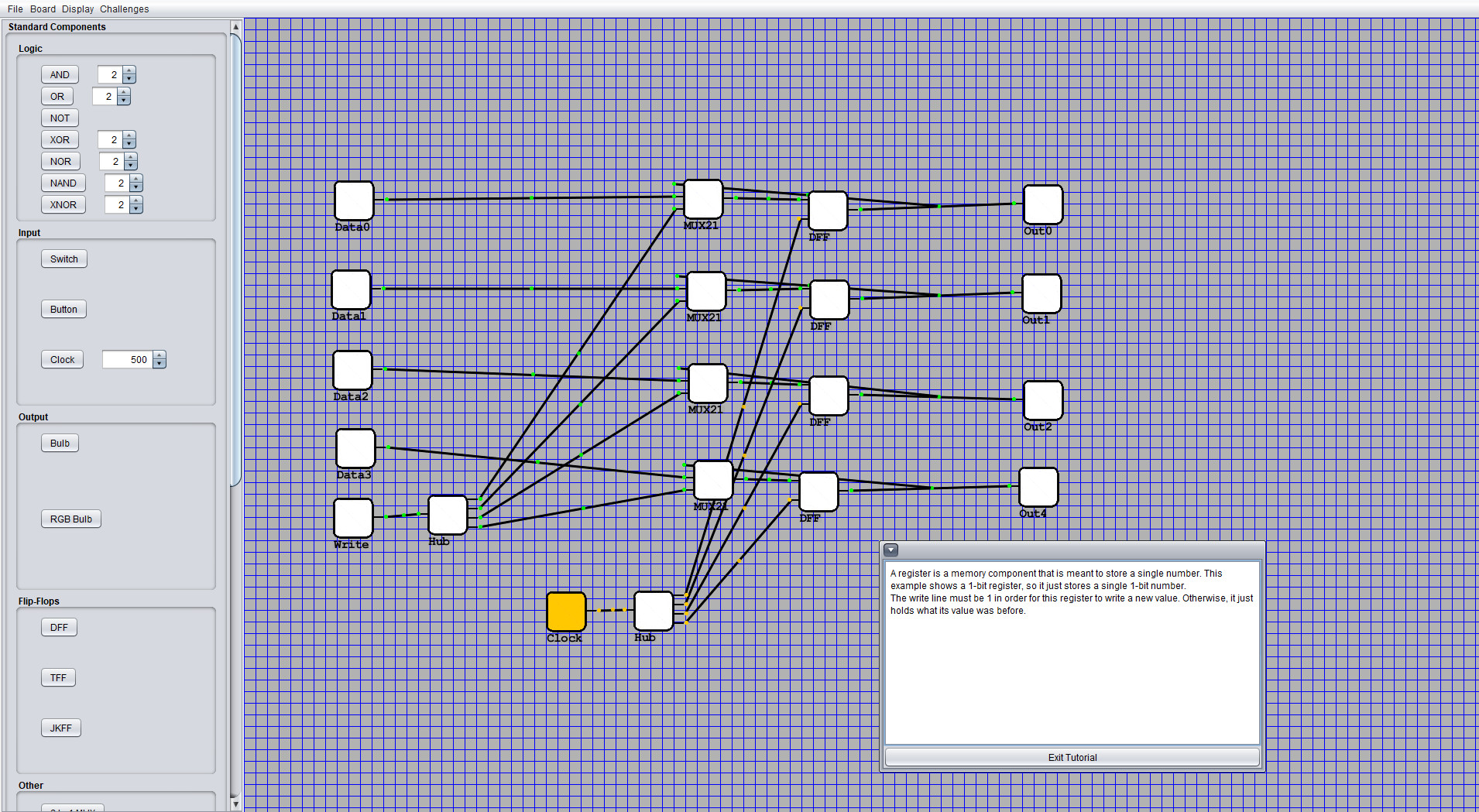
Разработчик: Brian Guidarini
Описание
Ones and Zeros is a powerful circuit sandbox and puzzle game. It aims to teach you, if you don't already know, how a computer works on the lowest level! Enjoy the satisfaction of creating a working computer, game, or truly anything you can think of! Your options are limitless in Ones and Zeros!'
What Features Does Ones and Zeros Offer?
- Creating custom components and implementing them in other circuits
- Sharing circuits
- Unlimited challenges with varying difficulty
- Tutorials covering useful circuits
If you are passionate about computers, enjoy challenges, or curious about how computers work, Ones and Zeros is the game for you!
Поддерживаемые языки: english
Системные требования
Windows
- OS *: Windows 7
- Processor: Dual Core Processor
- Memory: 4 GB RAM
- Graphics: Nvidia 9800 GT Or Equivalent
- Storage: 300 MB available space
- OS: Windows 10
- Processor: Quad Core Processor
- Memory: 4 GB RAM
- Graphics: Nvidia Geforce GTX 650 or Better
- Storage: 512 MB available space
Отзывы пользователей
This is a sandbox, not a game. Unless I am blind and missed it, there are no levels/challenges apart from being asked to replicate a simple truth table between inputs and outputs. And instead of letting you build the more advanced components (multiplexers, flip-flops, registers, adders, counters, maybe even a full CPU) yourself, it just shows you everything built already in the tutorials. The dev says he is doing a huge overhaul currently. Maybe that includes actual levels. Until then, only buy this, if you are interested in a sandbox. If you like games like MHRD, TIS or Shenzhen IO, you probably won't be happy with this.
The Dwarf Fortress of circuit simulators, i.e. the world is your sandbox
A fairly simple circuit simulator with some decent tutorials and the ability to make one's own custom components. Has a simple set of I/O challenges and a friendly developer who maintains good communications with the users when suggestions or bugs are found.
I should preface this review by stating that I have no logic gate experience beyond simply being able to walk myself through the reasoning behind all the AND, OR, XOR, etc very slowly. The tutorial is not the prettiest thing, and you have to hunt for it through the menu's rather than it being rather obvious from the start. I have been able to learn the basics such that I am able to solve the occasional beginner's Challenge. I haven't tried intermediate yet, as I'm still learning to identify solutions rather than helplessly try all the gates until I start to get progress (Yeah, I know, "git gud"). Overall, I find this a very fun game with a large chunk of educational potential. However, what I do feel is that there is a disconnect between the tutorial/challenges "type" of gameplay and the "construct your own projects!" opportunities. I think this could be a bit more directed to help simpletons like myself try to figure out WHAT to make and how to go about doing it. I do think that there is attempts at this due to the thorough tutorial, but I think a bit more hand-holding would increase the likelihood that I would play this game again and REALLY dig into the creative aspects of this.
There are some BUGs need to be fix. You can only load 4 Customization Circuits and the customization Circuits will not shows up unless you restart the game. And also you cannot delete half of the circuits. Once you delete, every joint will disappeare. You cannot customize your circuits route as well which make your page look massy. DFF don't have a reset button and ~Q output.
However it is a very good game for DSP simulation. It will be great if the author improve this game a little more.
Background: I have over 20 years of programming experience in my past employment, and have been a programming hobbyist since I was 14 years old (thanks Radio Shack). I have entry level experience in electronics through a few online courses and in some of the games I've played on here.
Ones and Zeroes was something that appeared in my queue because it was similar to other sandbox games I own on Steam, like the Zachtronics games. After watching a video about the game and looking at a few screen shots, I purchased it during a Steam sale.
The game is a sandbox puzzle solver where you create and test logic circuits. You wire up inputs (for example switches and buttons), logic gates (AND, OR, XOR, NAND, NOR, etc), outputs (LEDs and bulbs), and other objects to produce components ranging from simple I/O paths to more complex structures like registers and even a working computer.
What you create can be later used as components in a larger assemblies like a computer simulation. This compartmentalized modular approach makes the designing of larger more complex structures easier.
There is also a challenge section where you are presented with a truth table (the defintion of which ie explained in the tutorials, see next paragraph) and tasked to create a logic circuit to generate a truth table that matches what was presented. A successful completion of each challenge results in a point being earned and accumulated (I assume it is to be used for accolades but don't quote me on that). The challenges are dynamically generated, and you can set how difficult the challenge can be. Sometimes the generated challenge creates a quirky truth table where all you need to do is click "Test Solution" and it works, but it's not often that happens. I've reported these to the developer.
No experience is required, since there is a library tutorial broken down into sections that begins with how to use the interface and placing items on the grid, what a truth table is, an explanation of what each piece does, and finally explaining the more advanced subject of registers, encoders and decoders and so on. Each segment comes with example diagrams you can run and study.
Ones and Zeros was just released (July 11 2018) and the developer has released patches and updates since then. He's also very receptive to bug report submissions. The application is very stable and most laptops and computers that match the system specifications should have no trouble running it since it uses a simple interface layout.
I recommend Ones and Zeros as a purchase because you can, with patience and a willingness to learn, design anything you want. Read the tutorials, experiment through trial and error, and you'll get a lot of playability and education from this.
This game has a very simple interface. Takes 30 seconds to figure out how it all works and you can get right into the challenges. Feels like something I would have done during a lab period in high school or college if I was pursuing a electrical engineering degree. I'm a nerd, so I could have fun playing this.
I don't give negative reviews when I feel something is over priced. Just note that I'm going to refund it just because I'm not sure I'm getting the bang for my buck. For me, Zachtronics is the standardbearer for this genre of games, and they always have some additional work done to make it more of a "game" that I will pay 12 or 15 bucks for. I just paid $20 for Exapunks, and Ones and Zeros is very austere in comparison. With this, I'm guessing I could find something similar for free on educational websites with flash apps, etc. I may come back and get this for cheap later on, because I don't think those free apps would let me build something huge like this would. Or if the content was somehow expanded I might pay the asking price.
Игры похожие на Ones and Zeroes
Дополнительная информация
| Разработчик | Brian Guidarini |
| Платформы | Windows |
| Ограничение возраста | Нет |
| Дата релиза | 19.01.2025 |
| Отзывы пользователей | 86% положительных (7) |

